 God provides. Relying on Jesus means that we trust that God provides. Provides what? Not everything we want, the way we want it, and when we want it. No, God provides what we need, the way we need it, and when we need it, even if we cannot see it at the time. Living life for a length of time often teaches us to see and trust in this way. The alternative is simply reliance on self which can lead to bitterness and damage to ourselves and others. Relying on Jesus means that we trust that he, as God, is working 100%, offering us the grace to persevere, even during times of great challenge. He laid down his life for us on the Cross, so that we might experience the fullness of God providing for us, the opportunity for Eternal Life. We are called to trust in God who provides. While presented here as seemingly simple, it is not. We like to feel as if we are in control of our lives and destiny. It is hard to surrender ourselves to Christ and rely on him. Faith gives us the ability to do it. The charity of Christ offers us the grace of faith, since God always wills our good in ways that we often do not expect or imagine. God provides. Let us rely on Jesus Christ. May the charity of Christ urge us on! In God, the Infinite Love, Fr. Frank
0 Comments
When I was at a recent Bible study with friends, we prayed about and discussed the passage from Matthew 14:22-33 – the story of Jesus calling Peter out of the boat to walk to him on water. As Peter sees the wind and waves around him, his trust in Jesus begins to falter and he starts to sink. When he cries out for help, Jesus immediately catches Peter, saying, “Oh you of little faith, why did you doubt?” In many ways, we, too, are like Peter: cautiously trusting the Lord, but when tested in the chaos, we learn our trust isn’t as strong as it should be. This is where we can look to St. Bartholomew for guidance. St. Bartholomew (also known as Nathanael), whose feast day is August 24th, was one of the 12 Apostles mentioned in the Synoptic Gospels. While little is known of St. Bartholomew, we see his true personality in John 1:43-51. The apostle Philip was a friend of Bartholomew, an Israelite. As Philip tells Bartholomew that he, Andrew, and Peter found the Son of God, St. Bartholomew responds, “Can anything good come from Nazareth?” Later, Jesus says of him, “Here is a true Israelite. There is no duplicity in him.” Jesus also says he saw Bartholomew under a fig tree before Philip called him, leading us to understand Bartholomew was in prayer with the Lord. St. Bartholomew immediately answers, “Rabbi, you are the Son of God; you are the King of Israel.” This passage reveals St. Bartholomew’s blunt honesty. He is open about his doubts of any good coming from Nazareth, but does not hesitate in his belief when Jesus reveals himself. This is why Jesus calls St. Bartholomew an Israelite with no deceit. Through St. Bartholomew, we see qualities that Jesus praises: honesty, truth seeking, sincerity and thoughtfulness. These good attributes allow Jesus to come into St. Bartholomew’s life and build trust with him. Likewise, St. Bartholomew is able to open up to new perspectives and ruminations on spiritual matters. In Matthew 5:8, we learn from the Beatitudes, “Blessed are the clean of heart, for they will see God.” St. Bartholomew is a model to us of this purity of heart. When we seek truth, we can more clearly see God and respond to his call. Living apart from the truth dims our relationship with God and our ability to hear his call. Dishonesty makes life more difficult for us to know the truth, which is built on trust. The Catechism of the Catholic faith says that “placing our trust in Christ’s promises and relying not on our own strength, but on the help of the grace of the Holy Spirit” enables us to become heirs in hope of eternal life. Ultimately, God is truth itself. We learn from St. Bartholomew’s example that we can come to know God better in reflection through prayer. To know God through prayer is to know truth and therefore trust. This open line of communication with God unlocks our minds to explore different perspectives and gives us the ability and willingness to overcome critiques, which is necessary for evangelization. Even in the above passage from Matthew 14:22-33, where Peter walks out onto the water, we learn at the very beginning of the story that Jesus found time to pray and reflect in solitude with his Father before meeting with the Apostles in the boat. St. Bartholomew’s prayer led him to truth. He trusted in God and then shared that truth with others in order to convert them to Christianity. After Jesus’ ascension, St. Bartholomew traveled farther than most of the other Apostles. He visited Syria, Ethiopia, India, and Armenia, preaching the Gospel and God’s word. It is believed St. Bartholomew was martyred in Armenia. May we learn to trust God through St. Bartholomew’s example! **This post was originally published on August 24, 2017** As we continue through this “Year of St. Joseph” as proclaimed by Pope Francis in his Apostolic Letter Patris Corde, one cannot help but reflect on St. Joseph: adoptive father of Jesus, spouse to the Blessed Virgin Mary, and Patron of the Universal Church. These lofty and impressive titles have been given to a man who in many respects is seen as humble, consistently in the background, and having no words come from his mouth in Scripture. His example of what it means to be a man and a father is one men can strive for.
As a father of a precocious one-year-old, I cannot help but look for examples of how to be a father. Of course, we often look to our own fathers, grandfathers, friends, and perhaps even godfathers and spiritual fathers through the priesthood. There are many qualities that we can emulate from these father figures in our lives, indeed very practical ones. How to change diapers without a mess; how to look good while carrying an undersized backpack filled with wipes, pacifiers, and a change of clothes; or at what posture to best steer that not-tall-enough stroller? What prayers should we be introducing to our young family? How can we strive to provide for our child both practically and spiritually? However, I would suggest another figure to look to: St. Joseph. When my son was baptized, a friend of ours – who happens to be named Joseph – gifted to him (and to us) a statue of St. Joseph. At the time, I considered it more of a funny coincidence, and a nice gesture. As I continued to reflect on it, I really began to see it as providential. Admittedly, as a new father, I was scared and anxious (I still am). St. Joseph undoubtedly faced many of the same anxieties. However, throughout Scripture he is portrayed as a man who sorts out problems and comes up with solutions in practical and brave ways. It is this particular quality that I think we, as fathers, should take as a noble example. There will be times throughout our fatherhoods when we will come to face challenges, confusion, and doubt. St. Joseph protected the Holy Family and trusted in the word of God when it was easy not to trust. As fathers we are called to protect our own families, not necessarily always from harm or danger, and also to provide an example of kindness, love, and humility that so often is characterized as weak. Instead, I invite you to seek St. Joseph’s noble example and see these qualities as a strength. We also need to trust in God. Pope Francis says in Patris Corde, “The greatness of Saint Joseph is that he was the spouse of Mary and the father of Jesus. In this way, he placed himself, in the words of Saint John Chrysostom, 'at the service of the entire plan of salvation.'” Let us as fathers follow in St. Joseph’s noble example to place ourselves at the service of God’s plan for us. Then we will truly be able to serve our families without fear or anxiety. For more on St. Joseph, read our blog post: “Ite Ad Joseph: 10 Quotes to Celebrate the Year of St. Joseph.” On December 8th, the Solemnity of the Immaculate Conception of the Blessed Virgin Mary and the 150th anniversary of the proclamation of St. Joseph as patron of the universal church, Pope Francis proclaimed the Year of St. Joseph. To celebrate this historic moment in the universal Church, the Catholic Apostolate Center has launched a series exploring the depth and richness of fatherhood. We will feature one post a month from fathers at different stages of fatherhood, godfathers, spiritual fathers, priests, and grandfathers throughout the year. We invite you to join us this year in learning more about masculinity, fatherhood, the dignity of labor, and the importance of faithfulness to the will of God. As we continue in our life of faith, we invite St. Joseph to be a father to each one of us, guiding us ever closer to his adopted son, Jesus. May he teach us how to be faithful disciples constantly adoring the face of Christ. To kick off our fatherhood series, I’d like to share some powerful quotes from Pope Francis’ Apostolic Letter, Patris Corde, that will help us more deeply come to know the quiet carpenter who helped raise the Son of God. 1. “Each of us can discover in Joseph – the man who goes unnoticed, a daily, discreet and hidden presence – an intercessor, a support and a guide in times of trouble. Saint Joseph reminds us that those who appear hidden or in the shadows can play an incomparable role in the history of salvation.” Throughout salvation history, God has repeatedly chosen the least likely of candidates to accomplish his will. Moses was slow of speech. Peter was a fisherman. Paul was a persecutor of the Church. Joseph was a carpenter. What matters not to the Lord is our status in life, our accolades, our prestige, or our mightiness, but simply that we do His will. St. Joseph modeled that in every moment of his life—from accepting Mary into his home, to naming his Son Jesus, from fleeing to Egypt, to returning to Nazareth. St. Joseph, teach us obedience and humility. 2. “The greatness of Saint Joseph is that he was the spouse of Mary and the father of Jesus. In this way, he placed himself, in the words of Saint John Chrysostom, 'at the service of the entire plan of salvation.'[7]” Joseph was a father in every sense of the word. He guided and protected his family, provided for them, and loved them with tender affection. Everything he did was for the well-being of Mary and Jesus. He is a strong servant leader—one that all men can learn from. To be a father is a great blessing and gift. St. Joseph, help us to be servant leaders. 3. "Saint Paul VI pointed out that Joseph concretely expressed his fatherhood 'by making his life a sacrificial service to the mystery of the incarnation and its redemptive purpose. He employed his legal authority over the Holy Family to devote himself completely to them in his life and work. He turned his human vocation to domestic love into a superhuman oblation of himself, his heart and all his abilities, a love placed at the service of the Messiah who was growing to maturity in his home.'[8]" Just as faith without works is dead, so too is love devoid of service. St. Joseph did not love solely with his words, but by his actions—which is likely why Scripture does not recount any of his speech—with St. Joseph, there was no need. His entire life was a song of love for the Holy Family and for God. St. Joseph, teach us to love as you loved. 4. "Joseph saw Jesus grow daily 'in wisdom and in years and in divine and human favour' (Lk 2:52). As the Lord had done with Israel, so Joseph did with Jesus: he taught him to walk, taking him by the hand; he was for him like a father who raises an infant to his cheeks, bending down to him and feeding him (cf. Hos 11:3-4)." So often, we confuse holiness with otherworldliness. Perhaps we imagine celestial music, bright light, and the presence of angels accompanying the saints wherever they went. But to be holy is to be most fully human—at St. Iraneus said, “The glory of God is man most fully alive.” True holiness means living out our vocations fully, and that includes family life. St. Joseph would have fed Christ and eaten with him, he would have helped him get dressed or tied his sandals, he would have played games with him, sang with him, and worked with him. To be holy is not to be out of touch with reality. St. Joseph was not above the normal duties of fatherhood. St. Joseph, teach us to live out our vocations fully by taking Christ by the hand. 5. "Even through Joseph’s fears, God’s will, his history and his plan were at work. Joseph, then, teaches us that faith in God includes believing that he can work even through our fears, our frailties and our weaknesses. He also teaches us that amid the tempests of life, we must never be afraid to let the Lord steer our course. At times, we want to be in complete control, yet God always sees the bigger picture." A life of holiness does not mean one devoid of fear or suffering. This was true even for Joseph and Mary. What makes Joseph such a model for us is not that he was fearless, but that he trusted in God. He did many things that were difficult and probably not what he had intended for his life, but he trusted and obeyed. He hears the will of God and acts. Later on, Christ himself does not promise a life without the cross, but that He will always remain with us as we carry our crosses. It is when we give God our fears, frailties, and weaknesses that He can transfigure us for His glory. St. Joseph, teach us to trust God. 6. "During the hidden years in Nazareth, Jesus learned at the school of Joseph to do the will of the Father. That will was to be his daily food (cf. Jn 4:34)." The home of the Holy Family was a domestic church in which virtue flourished and sanctity was cultivated. As the head of the family, Joseph served as a priestly figure and an earthly shadow of God the Father. Joseph would have been a man of Scripture who obeyed God’s commandments and lived a life of authenticity and virtue. How beautiful it is to think that Jesus “learned at the school of Joseph.” St. Joseph, teach us to do the will of the Father. 7. "Just as God told Joseph: 'Son of David, do not be afraid!' (Mt 1:20), so he seems to tell us: 'Do not be afraid!' We need to set aside all anger and disappointment, and to embrace the way things are, even when they do not turn out as we wish. Not with mere resignation but with hope and courage. In this way, we become open to a deeper meaning. Our lives can be miraculously reborn if we find the courage to live them in accordance with the Gospel. It does not matter if everything seems to have gone wrong or some things can no longer be fixed. God can make flowers spring up from stony ground. Even if our heart condemns us, 'God is greater than our hearts, and he knows everything'(1 Jn 3:20)." The words of God to Joseph echo once more for us today: do not be afraid! Fear, stress, and confusion are all normal to the human condition. God is not asking us to erase these feelings from our lives, but to give them over to Him. He is calling us to abandon ourselves to His loving providence and not become imprisoned by these emotions. St. Joseph may have feared for his family’s safety and well-being, but he was not consumed by fear or paralyzed by doubt. Pope Francis calls him, “creatively courageous.” “In the face of difficulty,” he writes, “we can either give up and walk away, or somehow engage with it.” Joseph engaged. St. Joseph, teach us to abandon ourselves to God. 8. "Work is a means of participating in the work of salvation, an opportunity to hasten the coming of the Kingdom, to develop our talents and abilities, and to put them at the service of society and fraternal communion. It becomes an opportunity for the fulfilment not only of oneself, but also of that primary cell of society which is the family." Work is a part of God’s plan for humanity. What was not part of God’s plan was toil or fruitless labor that does not uphold mankind’s dignity. Prior to the Fall, Adam was called to till and cultivate the land. Christ has redeemed work once again by enabling us to offer all that we do and unite it to His sacrifice on the Cross. Our work can now have immeasurable meaning and be a means of sanctification. Joseph is also known as St. Joseph the Worker. He worked as a carpenter throughout his life and in this way provided for his family. When we work for others, when we work well and faithfully, our work can be a means of building up the Body of Christ and loving or serving one another. St. Joseph, teach us the dignity of human labor. 9. "Fathers are not born, but made. A man does not become a father simply by bringing a child into the world, but by taking up the responsibility to care for that child. Whenever a man accepts responsibility for the life of another, in some way he becomes a father to that person." Fatherhood is so much more than physical procreation. It involves the cultivation of family and of the human person. It means providing for the spiritual or physical well-being of others. For this reason, priests are also called “Father.” They represent our Heavenly Father and make manifest His graces poured out in the sacraments. They accompany us on our spiritual journeys and act as shepherds guiding us towards holiness. Godfathers, too, play an important role in society by serving as models of holiness for their godchildren and praying and interceding on their behalf. St. Joseph, teach men true masculinity and authentic fatherhood. 10. "The Church too needs fathers." Not only do families need fathers and stable father figures, the Church and world do as well. Authentic fatherhood is an essential part of God’s plan for humanity and is a part of God’s very identity. Society cannot exist and thrive without healthy and holy fathers. God chose to enter the world through a family and was obedient to his foster father Joseph while under his care. Scripture tells us that he "was obedient to them (Joseph and Mary).” St. Joseph, help raise up strong and loving fathers and father figures in our Church and society. As we journey together in the Year of St. Joseph, let us pray to this powerful intercessor using the prayer of Pope Francis, Hail, Guardian of the Redeemer, Spouse of the Blessed Virgin Mary. To you God entrusted his only Son; in you Mary placed her trust; with you Christ became man. Blessed Joseph, to us too, show yourself a father and guide us in the path of life. Obtain for us grace, mercy and courage, and defend us from every evil. Amen. As a child, I played a favorite game with my friends called “follow the leader” where everyone did exactly as the name suggests – followed the leader. If you didn’t do what the leader did you would be eliminated from the game. This game correlates to the Christian life: when we follow Jesus and do what He did, we reach our heavenly destination. We are wise to remember and heed Matthew 18:3-4: “Unless you become like children, you will not enter the Kingdom of heaven. Whoever becomes humble like this child is the greatest in the Kingdom of heaven.” How important it is as an adult Christian to always have the willing mindset of a child – to follow the leader with joyful expectation and simple trust. This reminds me of a remarkable event in my life that illustrates this concept. Several years ago, when our four youngest children were still living at home, we embarked on one of our family camping vacations. Having a large family, we had chosen camping as a way to enjoy a vacation together while on a budget. It removed all the distractions of our life of modern conveniences and afforded us time in the great outdoors to relax and build memories. This particular adventure took us to Cloudland Canyon State Park on Lookout Mountain, on the border of Georgia and Tennessee, a glorious place high in the mountains with astounding stargazing at night and amazing hiking trails during the day. One day we chose to traverse the Waterfalls Trail. The sign at the trailhead read “Steep grade ahead, use caution. Stay on marked path.” That should have been my moment of truth, my opportunity to bail and choose to sit on a bench and enjoy the 1780 ft vista and await my family’s return. But I ignored the queasiness in my stomach and forged ahead with them as they vivaciously marched down the canyon on a slim, winding trail. My stomach began to ride higher into my chest, my breathing was becoming fast and bordering on gasping and my feet were becoming heavy and unsure on the many twists and turns. After we passed under an enormous rock overhang, my body halted and I literally could not take another step. I was paralyzed with fear. Did I forget to mention, I’ve suffered from overwhelming fear of heights ever since I was a teenager? It was alive and acutely crippling on this day. As I watched my children bounding ahead and walking precariously near the rim of the steep trail, the fear gripped me to the point of panic. My husband kept telling me to look ahead, not down, and to follow his footsteps so that I would be safe and secure. The more I thought about moving forward, the stiffer I became. Moving at all in this way was sure to make me more apt to stumble. On my own steam, I could not go any further. I was at an impasse. With wisdom and child-like trust, my husband gathered our children all around me and asked each of them to lay their hands on me and to pray for all fear to cease so that I could be free to walk with joy and confidence. They did not want to leave me behind or to turn around and abandon the hike to the waterfalls. After several minutes of prayer, my breathing slowed to normal, my heart stopped racing, I unclenched my fists, and my legs relaxed. I felt a distinct release of tension in my body and my mind – so much so that I knew that I could resume the hike without fear. It was a healing miracle I claim to this day, as I can now hike steep mountains and enjoy magnificent views from heights that I could not before. My husband and children were instruments of faith who infused the peace of Jesus into me so that I could follow the leader and enjoy the boundless beauty nature had to offer on that hike. Later that night, my husband commented that Jesus healed me and gave me sure feet to traverse the steep path with assurance. I will never forget that manifestation of God’s love for me and I am willing to continue to follow the leader on all the paths He takes me because I know He will give me strength and guidance every step of the way. I am comforted by the instruction in Matthew 7:13-14 where Jesus says: “Enter by the narrow gate, since the road that leads to destruction is wide and spacious, and many take it, but it is a narrow gate and a hard road that leads to life, and only a few find it.” As humans, we cannot find and walk this path on our own. We need a leader, but we also need to be aware of all the people God places in our lives who provide guidance and leadership when we need it. It is part of the mystery and beauty of living in community with others in this life. If I had not yielded to the assistance of my family, I would have remained in bondage to crippling fear. I received help to navigate off the wide road of self -doubt and irrational panic that is destructive. With simple child-like trust and prayer, I was able to stay on the narrow path that led to a glorious adventure and freedom! My prayer is that each of us practices the obedience of following the leader so we can navigate the path that leads us to eternal peace. It is certain to be rough, but instruction is always available to us. We have to be humble and have child-like trust to adhere to the direction He provides. “Whoever wishes to come after me must deny himself, take up his cross, and follow me.” Matt. 16:24 Recently, my husband and I attended a virtual Catholic Marriage Summit called, “Joyful Ever After.” Several of the speakers mentioned the importance of cultivating the virtue of believing in your spouse’s best intentions rather than assuming ill will when a perceived grievance is committed. I thought back to a time when my husband and I were dating long-distance. He texted me that he would be arriving late to see me, which was very unlike him. I was a bit sassy in my response. What I didn’t realize at the time was that he was late because he ran into traffic while buying me a surprise bouquet of flowers. A podcast I listen to addressed this same predicament when we interpret our children’s actions before we know their true intentions. The mom on the podcast shared how terribly she felt after becoming upset with one of her children for making a mess of crafting supplies only to find out her child brought out the materials to make her a love note. Encounters like these provide us with opportunities to choose love. Making up stories in our minds that may not be—and most of the time are not—true does more harm to our relationships than good. Assuming good intentions from our spouses, family, friends and co-workers allows us to foster and strengthen relationships. Doubting someone else is a way of protecting ourselves. God is the one who gives us courage to trust others and give them the benefit of the doubt. Being less defensive makes others more receptive. Opening ourselves up to another allows us to share the hope and joy of the Gospel. We become more likeable, less distracted by imagined problems, focused on the actual issue, and are overall happier. After all, God gives us a second, third, fourth and ultimately infinite chances in response to our shortcomings. As James 2:13 says, “For the judgment is merciless to one who has not shown mercy; mercy triumphs over judgment.” Training our minds to think of others and the best intentions they have can both help us and improve our relationships. In many occasions, the person we are interacting with may be reacting from a previous interaction that overflows into our relationship with them. By keeping an open mind without judgement, we allow the Holy Spirit to enter our hearts so that we may reach out to the other with empathy and love. This serves as a reminder to us of our own humanity and imperfection. Believing in another person’s best intentions is an act of faith. To foster this line of thinking in my own marriage, every day I try to share something I’m thankful for about my husband. I try to think about this during prayer as well to help develop gratitude. When I don’t understand something that my husband is doing or has done, I try (very hard!) to ask open-minded questions in order to open dialogue instead of shutting the conversation down or arguing. Some other ways we can seek to see the best intentions in others are: asking for clarification, listening to what’s being said rather than waiting to share our own thoughts, and refraining from editorial comments that could aggravate the situation. During these unusual times, we could all benefit from more compassion and grace. Let us open our hearts and minds to seeing the best in others. For more resources on Marriage and Family, please click here. For more resources to accompany you through this time of COVID-19, please click here. “The beginning of all effort is the recognition of what is.” -Romano Guardini, Learning the Virtues That Lead You to God, 1963 Professional athletes do many appearances while playing. We get paid to show up at fundraisers, youth camps, watch parties, and promotional events. Something that is practically a guarantee when attending these appearances is one or more sets of parents coming up to tell us about their child who plays soccer. Often these conversations are quite enjoyable, but almost inevitably, there are a few who want to talk about how their son or daughter was short-changed in their youth soccer experience. There is a lot that these parents say to us, but the consistent element is: my child didn’t succeed because of some external factor. This may very well be the case for some of them. It is equally true, however, that it is certainly not the case for all of them. Much of the time the boy or girl just wasn’t good enough for a particular team, level of competition, or system of play. The point of this post is not to drop the heavy hammer that many kids run out of the athletic ability rope and should give up. No, this post is about the absolute necessity of taking an honest stock of where someone actually is--especially for the spiritual life. Romano Gaurdini says that “the beginning of all effort is the recognition of what is.” The reason for this being that you cannot begin making the effort to improve unless you start with who you already are. Any professional athlete will tell you that it is far more helpful to be taught how to assess and address weaknesses rather than to pretend they don’t exist. In fact, most professional athletes are fairly obsessive about identifying areas in their game where they can improve. If I determine I’d like to be a better shooter with my right foot, for example, then I must begin with the harsh—but necessary—reality that I can barely complete a pass with my right foot. If I never acknowledge my current ability, I’ll constantly run into problems—poor technique, inadequate fundamentals, and so on. I’ll never become a strong shooter without addressing the plain truth of my current ability. This is a skill that requires disciplined practice and will never simply be acquired because I want it to be so. First comes acknowledgment, then a plan for improvement, all for the hope of becoming a good right-footed shooter. This same principle can and should be applied to our spiritual lives. Just as improvement can only take place in athletics by beginning with where an athlete currently is, spiritual advancement can only begin by taking an honest assessment of where one currently is in relation to God. This means you’re far better off admitting that you struggle to pray for 5 minutes and taking that to God than wondering when you’ll receive the Stigmata. It is far more helpful to search deep within yourself and locate and name your pride, selfishness, ego, envy, or lust than only present to God your most pious and holy thoughts. He knows your heart already—He’s just waiting for you to know it as well. One of the most helpful exercises for high-school, collegiate, and professional athletes is to watch film in order to identify strengths and weaknesses. The team watches the most recent game in order to see what needs to be addressed that week in practice. This same concept can migrate into our spiritual lives—we look for points of departure and development in order to draw nearer to God. This practice is not to discourage but to improve. There’s no shame in acknowledging ourselves as we really are. In fact, God can really only begin to heal us once we acknowledge where we are hurt. The Physician cannot tend to our wounds unless we let Him see them. Several days ago, I was talking to my wife about this concept and she brought up how watching film for athletes is similar to the examination of conscience recommended by the Church. Examining one’s conscience on a regular basis is like looking back over the tape to see the strengths and the weaknesses—the graces and the sins—in order to grow. Then, with this self-knowledge, we can go to God, say thank you, and ask for forgiveness, trusting in His merciful love. God looks down on us and loves us as we are, but He also promises that His love is transformative. He looks down and says, “I love you,” while at the same time calling us higher. He wants us to identify what is so that we may cooperate with His grace and begin the beautiful work of improvement. This we call sanctification. May we all be willing to look at ourselves honestly—as we really are—so that we enter into the effort that is the fight of faith (cf Jude 3), trust that God’s grace is sufficient (see 2 Cor 12:9), and become the saints Jesus Christ died for us to be.
I watched her curly little head bounce away from me further down the hiking path and around a bend, out of my sight. I knew her older brothers would slow down so she could keep up with them, taking her under their wings. In the midst of a global pandemic, the woods were a safe space, open and free from the danger that seems to lurk everywhere these days. Nonetheless, my heart rate picked up along with my pace. What if a stranger was on the path? What if she fell and got hurt? I couldn’t see the path ahead, and I was afraid. I hurried along, my anxiety increasing as my steps forward failed to lead me to a view of my children. My thoughts turned dark while the woods around me became bright. Trapped in my own head, I failed to notice the sun breaking through, filtering light through the treetops. Until—there! The sunshine reflecting off of my little girl’s sequin covered sneakers allowed me to catch a glimpse of my babies. “Red light!” I yelled, in our family shorthand for “stop-moving-your-body-immediately.” The birds scattered, startled. My children froze in place as they waited for me to catch up with them. As I knew they would be, the boys were watching closely over their little sister. Taking her by the hand, they coached her through the mud and over the fallen branches. “See, Mama? Pretty!” my curly little girl exclaimed, joyfully depositing semi-crushed wildflowers into my hands. After rubbing her nose against mine, she joined her brothers on a moss-covered log, not registering my fear for even a moment. Exhaling a sigh of relief, I praised God in joy for great big brothers, my safe little girl, and a Father who is Light, illuminating the way. In this season of uncertainty, I find myself living that moment on the hiking path time and again: rushing forward, afraid, unable to see what is ahead. My days are filled with research and passionate conversation about schooling, and what the right choice for our family will be this fall. We deliberate over each barbecue invitation and mourn the loss of birthday celebrations that will never come to life. Parenting in a season where change is the only constant is overwhelming. I’m living that moment on the hiking path again: where I could not see, there was light. Though I was afraid, the Father was before me, protecting my little ones. So now, instead of remaining trapped by my thoughts, I am pursuing His power and protection. I am practicing seeking the light. In his letter to the Colossians, St. Paul reminds us that we can live in joy even in the midst of hardship, and he shows us how: “[We are] strengthened with every power, in accord with His glorious might, for all endurance and patience, with joy giving thanks to the Father who has made you fit to share in the inheritance of the saints in light. He delivered us from the power of darkness and transferred us to the kingdom[...]”(Colossians 1:11-12). Joy is a pursuit. By God’s great mercy, we are called out of the darkness and into the light. We are invited to share in the inheritance of the saints, if only we can pursue His power and glorious might instead of depending upon our own. When left to myself, I abandon joy for the hopelessness and despair that seems to permeate the world during this pandemic. However, when I pursue the heart of Christ, I am promised endurance and patience. I am equipped to face the reality of a sick and broken world and to remain unbroken by its weight. In His power alone, joy still abounds. Joy is a practice. Turning hands full of crushed wildflowers to praise comes with intentionality. So: let us train ourselves to joy. When we feel the dark closing in on us, we are called to joyfully give thanks to the Father and to seek His fingerprints that so graciously mark our lives—to acknowledge His many gifts. When the trees block our view, let us enjoy the sunshine filtering through their branches. When the path is rocky and unsure, let us acknowledge that He walks alongside us, and before us. When we suffer through sickness, hardship, and isolation, let us hope in God who has overcome suffering once and for all. This is joy. Grace-filled moments of contentment, happiness, peace, safety, and hope that we open our eyes to experience, even in the midst of the dark. Where happiness is fleeting and circumstantial, joy is ours to keep no matter the circumstance. Along this path I will stumble and fall. Joy will evade me as I am burdened by fear and uncertainty. But I will allow the Lord to raise me up, seeking the joy He offers me despite my skinned knees. Like my curly girl, I choose to trust that I am not alone. I choose wildflowers and light. I chase joy.
The principle of God’s Infinite Love is consoling in prayer, encouraging in our personal darkness, and a bright light for preaching and teaching. But when it comes to pastoral care, this Infinite Love can feel overwhelming, idealistic, and impossible. On a more personal level, Infinite Love care can lead to feelings of guilt at not having done enough and shame at not being enough. Consequently, the idea of accompaniment can quickly appear to be wishful thinking. How am I to walk with people when I am just one person with one sunrise and one sunset each day? There are dozens or hundreds of people who need care in my community, but I can barely finish my homily, or you can barely get the kids to school on time. The problem is with two false thoughts. First, we are not God. We are not the source of Infinite Love, and we shall never be. Second, accompaniment does not mean that I have to walk with each person all day. This is impossible. Honestly, many good Catholics have difficulty letting go of control. The worst example of this is the savior complex. We are not the saviors, Jesus is. The reality is that the Lord God is the principal Accompanier, not us! And, out of His goodness, He has chosen myriads of intermediate accompaniers. In other words, and hear me well, WE do not, nay, we cannot try and do it all on our own. And isn’t it ironic that right after we priests preach and teach that to people that they cannot do it on their own, then, as spiritual caretakers we immediately set aside our theological principle of interdependence and try to do it all on our own. Thoughtful accompaniment lies in deploying a sophisticated network of groups and individuals to care for, to check on, to talk to, to bring communion to those in need. God doesn’t expect us to be perfect, just saints. Let the lesson of accompaniment be your lesson today: just do what you can, but don’t go at it alone. Only God is Infinite Love. When I was a senior in high school in the diocese of Joliet, then-Bishop Peter Sartain came to celebrate one of our monthly school Masses. I was asked to assist the Bishop for the day, and throughout the day he and I had many warm conversations. I received a piece of mail a few weeks later from Bishop (now Archbishop) Sartain containing a handwritten note and several prayer cards with Blessed Pier Giorgio Frassati’s image on them. Little did I know that the young Blessed would soon become one of my dear patron saints. In my opinion, anyone who offers their life as an apostle on mission—including lay and ordained ministers, Catholic school employees, catechists, and all spiritual guides—should keep Blessed Pier Giorgio Frassati as their patron saint and their example to combat despair and to joyfully share the Gospel. Blessed Pier Giorgio shows us the Christ-like demeanor and personality that the Church and her ministers and missionaries should possess as they evangelize the world. Blessed Pier Giorgio makes an excellent spiritual guide and mentor because he was an ordinary young man with a profound commitment to the poor and to justice. There are countless books and articles that describe how Pier Giorgio spent hours serving the poor and the homeless, often giving away the money he had for bus fare and even his own jacket! His parents misunderstood his great actions of charity, and often scolded him when he returned home late without his coat. He was never distracted from the missionary imperative of the Gospel. Instead, he served those on the margins as Jesus commanded. Archbishop Wilton Gregory of Washington D.C. recently stated in a webinar, “The Church lives in society. The Church does not live behind the four [walls] of the structures where we worship.” Just as Pier Giorgio Frassati befriended the poor and sought justice as a “man of the beatitudes,” we too must go beyond the four walls of our churches, homes, and offices into the margins of our society to serve our brothers and sisters and work for justice. Blessed Pier Giorgio also accompanied others in their pursuit of God. He maintained unlikely friendships and was neither bound up by cynicism nor weighed down by scandal. Instead, he actively worked against these in his interactions with all. Many stories detail his love for pranks, making bets with his friends over games and making the stakes be attending Mass or Adoration. Like this soon-to-be-saint, we must live in the world while encouraging others to return to Christ in the spirit of friendship. As apostles on mission, we must live, work, and play with a renewed spiritual vision, driven by the practice of spiritual accompaniment. The quality I most admire in Blessed Pier Giorgio is his ultimate trust in God’s plans. He did not try to take control of his life’s plan nor did he envy God’s authority. Rather, he allowed God to guide him as he discerned his future and his mission in life. Pier Giorgio brought Church doctrine to life through his service and actions. He lived with a gospel-inspired freedom. He spent time in deep prayer, contemplating the mission God had laid before him, discerning to serve the poor as a lay man with expertise in mechanical engineering rather than as a priest. Pier Giorgio trusted God. As Alfonso Nebreda, S.J. wrote, “We must not forget that man cannot nourish his spirituality with orthodoxy alone … there is more to Christianity than this … for faith is life” (Kerygma in Crisis?, Nebreda). Blessed Pier Giorgio embodied the Gospel, and he lived it out according to his mission from God. As we consider the life of Blessed Pier Giorgio Frassati, I invite those who serve the Church as lay or ordained ministers, catechists, educators, and spiritual guides to adopt this young saint as a guide for our spiritual lives and our ecclesial missions. Let us invite the same Spirit who lived in Blessed Pier Giorgio and who makes the Church vibrant to renew our hearts, minds, and missionary efforts. Blessed Pier Giorgio, pray for us! Interested in learning more about becoming an apostle on mission? Click here to learn more. During our engagement, we were told several times to expect that something would go wrong during our wedding no matter how much we planned. Well, neither my husband nor I expected a pandemic to be that unexpected surprise! For me, getting married during COVID-19 has been a spiritual journey. I’ve learned a lot throughout the wedding planning process – namely, to embrace flexibility, be open to changes in my expectations, find gratitude in every situation, focus on what’s most important, and trust in God as well as our family and friends. The biggest lesson for me has been to more fully understand that we don’t control our lives as much as we think we do. My family, friends and colleagues know me as detail-oriented, prepared and a planner (who probably strategizes too far in advance). I’m not a fan of surprises, I’m cautious, and I like to meet or exceed expectations at all times. Growing up, my friends nicknamed me “Mom” because I always made sure to have the extra snacks, hand sanitizer, suntan lotion, an umbrella, etc. for wherever our adventures would take us. When it came to wedding planning, I wasn’t the type of person who had everything planned out since childhood. But when it became clear that my husband was “The one,” I read Catholic wedding websites and would run ideas by him. The day after his June 30, 2019 proposal, I went to our church to find out about the process and everything we needed to do to select a spring date in 2020 that would then determine all our other vendor options. As more and more reports popped up in March that the novel coronavirus had made its way to the U.S., my then fiancé (now husband) remarked with a laugh, “I knew things were going too smoothly with our wedding planning!” We hoped and prayed that all would be clear by the time our May 23, 2020 wedding would take place. Initially we prayed that we’d still be able to go on our European honeymoon. Oh, how quickly those naïve prayers turned into “Lord, please let us still be able to get married in the Catholic Church on May 23!” Our priest assured us that he’d do anything in his power to ensure our sacrament could happen, even if our wedding didn’t necessarily look the way we or the church had planned. For this, we were so grateful. In addition to our desire to be together legally and in the church, a lot was riding on our decision to marry on this particular day – including job offers and job relocations, home sales, moving me to a new location since we were in a long distance relationship, and more. We gave it all to God to handle. As our priest said in a recent homily, “I can’t. God, you must.” We planned for several different wedding options (a tiring effort!). As one of my bridesmaids put it, we had “Plans A, B, C, and X, Y and Z!” Many times, I found myself reflecting on what Jesus said to Martha in Luke 10:38-42, “Martha, Martha, you are anxious and worried about many things. There is need of only one thing.” By focusing on our sacrament of marriage and making sure that it could happen above all things, we grew closer to God and one another in handling the first big cross of many crosses that will come with marriage. When our home state opened for Phase 1 in early May, anything we could do that was originally planned we saw as an extra blessing. I found gratitude in the smallest of things, like getting a manicure for our wedding. Thankfully, we were able to have our nuptial wedding Mass on May 23 with a small celebration of less than 25 people to witness our marriage vows. We had a reception at the restaurant of a fellow parishioner, where we held a Zoom call with our relatives and friends so they could see our first dances and toasts. Our best man and maid of honor were out of the state and not able to attend in-person, so they gave their beautiful speeches virtually. Our nuptial Mass was the first time since the second week in March that both my husband and I received the Eucharist and attended Mass in person. The amount of gratitude I felt during the Liturgy of the Eucharist and receiving our Lord left me feeling as though love was overflowing. I appreciated every moment of the Mass like I was listening to it for the first time; being fully present and not taking any part of the liturgy for granted. I had prayed every day for a wedding day and marriage more beautiful than I could ever imagine, and our nuptial Mass and special day were certainly that. I wouldn’t have it any other way. We’re just a few weeks into married life, and we are looking forward to a lifetime to go! "…we constantly find the tension between what man is and what he would like to be; between that which has been realized and that which remains to be accomplished. And it is patience which endures this tension." -Romano Guardini, Learning the Virtues That Lead You to God, 1963, 39. It turns out I really am not a huge fan of working out. After retiring from professional soccer in 2018, I’ve found it quite difficult to motivate myself to exercise when it is not formally baked into my day and when I am not paid to do it. I like being fit, but not the effort and time it requires. There is another reason, however, that I do not like working out, which is: I am impatient. Rather than committing to a regular schedule and planning the workouts to be manageable in difficulty, I go sporadically and push myself to a near death experience. Every. Single. Time. Behind my mindset is a deeply embedded impatience with the process of becoming fit. I want the result without the process—which is not possible. I want to become fit through the course of one rigorous workout and overstep the gradual process that it takes to become a fit person. In sports there is the common—and helpful—phrase of “trust the process.” What this means in the sporting world is that there is a necessary process of development that every athlete must go through in order to become good or great at his or her sport. It means that no one can go from ‘beginner’ to ‘expert’ without passing through ‘proficient’. There is a development in sport—and life—lodged in the school of gradual growth rather than immediate transformation. This frustrates us. All of us have some idea of who we would like to be, which is then immediately confronted by the reality of who we are. What enables us to endure this gap between idea and reality is what we call patience. Patience is needed where there is a desire not yet fulfilled. Case and point—my workout saga. I want to be fit (idea) but am not (reality) and therefore need patience to trust the gradual process of becoming fit. Patience is the virtue needed to shorten the gap and become who I want to be. There is another phrase in athletics related to “trust the process,” which is, “love the process.” What this means is that the best thing an athlete can do on the road to athletic development is not only trust that skill is only developed over time with effort, but that coming to enjoy that slow and gradual development is an extremely beneficial thing. The great athletes do this. There’s a reason you hear so many stories of the best athletes, from all different sports, being the first at practice and the last to leave. They fall in love with the process of becoming better. Apart from a commitment to the process there is no greatness. We must come to trust and love the “process” of being made holy. When I came into the Church in 2015, I was on fire. I wanted to: be a priest (while I was engaged to be married), learn to pray the Rosary, read St. Faustina’s diary and St. Teresa of Avila’s autobiography, make a pilgrimage to Fatima, know the 2000+ year history of the Church, and learn Biblical Greek (all of these are true and I tried to do all of them with the exception of become a priest). I wanted to become a saint overnight. However, I didn’t quite realize that’s typically not how God works. He knows—because He made us—that if He sanctified us too quickly, we’d be tempted into thinking we are responsible. So, just like every natural thing on earth, our spiritual lives develop organically over time, with much difficulty, slow progress, victories and defeats, deaths and resurrections, all for the purpose of maturity. Sanctification—growing in holiness—is a process just like anything else that is real in this life. Character does not suddenly emerge, wisdom is not haphazardly acquired, and virtue is not cheaply gained. All of the things that pertain to our nature—that is what makes a person a person—come by way of the long, winding, and arduous road. We must come to love the road. Guardini points out that—in our spiritual lives—it is often patience with ourselves that is most needed. We see who we would like to be and the faults of who we are. There is a saint in the distance but a sinner in the mirror. All of this is a call to patience—not despair. “Patience with oneself…is the foundation of all progress,” says Guardini. The gap between who we are and who we would like to be is not so much a condemnation on ourselves but an invitation from God to dream bigger, to trust in His grace, and to patiently enjoy the journey. “He who wishes to advance must always begin again,” Guardini continues, and this takes strength. It is easy to float through life without ever attempting the effort necessary to gradually grow, or the effort to begin again, or the effort to examine oneself, or the effort to admit you desire more. The virtue of patience requires strength—an interior strength that can withstand the assault of failure on our ego. Strength to call things as they are. For “only the strong man can exercise living patience, can take upon himself again and again the things that are; only he can always begin anew.” This is a living patience—one capable of enduring “the process” with joy trusting in the direction of one’s life. Jesus, may we all trust in your grace over our efforts and patiently trust the process that is your grace working in us for our sanctification. Help us to learn to be content where we are, focus on what is in front of us, and be satisfied with small steps, realizing that small steps are a big deal. May we be granted the strength to endure our shortcomings in all things, but especially our spiritual lives. May we look to your goodness, mercy, and transformative love and trust that you are leading us—slowly, gently, and for our own good—exactly where we are meant to go.
It was my spiritual director who first introduced me to the phrase new normal which has since become quite common in the days of COVID-19. At the time I learned this phrase, my Dad was sick, the situation was changing by the day, and my spiritual director shared a piece of wisdom with me: clinging to the past with no regard to where we stand in the present, let alone where we will stand in the future, is of little good. This doesn’t mean that we can’t look back fondly on memories and experiences—we should—but sometimes it’s necessary to shift our gaze from what was normal to what is our new normal. Turn on the news and we’re bound to hear this phrase mentioned. The elimination of handshakes, added temperature screenings before flying or entering large venues, social distancing—these are all changes that are tossed around as potential aspects of our new normal. Inherent to the new normal is grieving the loss of what used to be normal. On a recent podcast, Brené Brown, a research professor and speaker, spoke with David Kessler, an author and expert on death and grief, about how we, as a world, are collectively grieving during COVID-19. Their first premise is that we must name our grief before we can take it on. As we look to a new normal, we will likely find ourselves grieving many of the simple acts we might have taken for granted. So many of these aspects of our new normal are so far into the future and so uncertain that it might not be fitting for us to focus on them for too long lest we begin to fear for something not even guaranteed for the future. That doesn’t mean that we are not still mourning the loss of our normal and experiencing a new normal every single day. I celebrated my best friend’s birthday last week by sitting 12 feet apart and talking from a distance without even being able to share a hug. For those who have loved ones in hospitals or nursing homes, the difficult and sometimes downright terrifying new normal is not being able to visit them, to comfort them, or to be comforted ourselves. Our new normal might include grieving not being able to go to the store because it’s closed or because we are considered high risk if we contract the virus. In one way or another, we are all facing a new normal, but we must fight the urge to compare whose new normal is worse or more challenging. The necessity to find a new normal isn’t new in itself. After 9/11, we were also forced into a new normal. The same occurred after World War I, World War II, the Spanish Flu, The French Revolution, and the Great Plague which all forced society to adopt a “new normal”. A new normal, however, doesn’t have to be a bad thing. The printing press, the steam engine, and the discovery of penicillin all created a new normal that we are thankful for. Of course, the greatest events which created a new normal were the life, death, and Resurrection of our Lord, Jesus Christ. Think of the Apostles, such as James and John, who were called from a fishing boat to follow Jesus. Their entire conception of normal changed forever in that instance. As our Lord hung from the Cross on Good Friday, the world (especially that of the disciples) faced a new normal. How dejected afterwards were the two on the Road to Emmaus with their new normal, one that seemed to go on without the man they had come to know as the Messiah? Then of course, Jesus rose on the third day; He had defeated sin and death, and an eternal new normal was ushered into the world. That is the new normal which we can turn to in every moment when our lives are forced into a new normal we may not have asked for. Jesus Christ, God made flesh, He who was and is and is to come, gave all of creation a new normal which rings eternal. Nothing that happens in our world can change what He did for us in His life, death, and Resurrection. We are faced with a constantly changing new normal and we have to name our grief and understand that some of what we once knew is no longer our normal. In doing so, may we always be rooted in Christ who stands above the chaos as the rock of our salvation.
Last week, one of my good friends sent me a funny video of a six-year-old girl who was upset at not being allowed to go to the pub. Her father manages a local Irish women’s soccer team that her aunts play on, and they were going to the pub for their Christmas party. The little girl, who feels like the team’s mascot according to the video, wanted to celebrate with her family. After laughing and laughing at the little girl’s arguments, I realized that the impulse to share something that brings such joy is a way the Holy Spirit can work through us, bringing us together even now.
After watching the video, I started thinking about how this little girl's sense of injustice is instructive for us, too, on a deeper level. In the video, she feels deprived from good times and togetherness.; denied celebration with loved ones; frustrated at restrictions that make no sense to her; and not allowed to make her own choices. Her every plea meets with rejection and her whole world feels wrong. Could this be how many of us are feeling today as a result of the coronavirus pandemic? Are we feeling isolated, lonely, trapped, or frustrated? Do we feel unheard or rejected by God? What stark contrast we experience right now between this inner despair or frustration and the emergence of spring all around us. Spring arrives nonetheless, unaltered in its processes. I think too of how Christmas still came to Whoovile in "How The Grinch Stole Christmas"--still it "came without packages, boxes, or bags!" In the movie, Christmas comes in spite of great deprivation and loss, in spite of so many unmet expectations and plans ruined, in spite of the Whos' demonstrated vulnerability. They responded by joining hands and refusing to deny the cause for celebration that they still knew inside of them, something no one or no thing could take away. We can't literally join hands right now (well, we shouldn't!) but we absolutely can remember that God has always been in control, and will always be in control, of all creation. We can remind ourselves this Easter season that His unbounded love for us remains our source of life here and our destination eternally. We can practice countering the appearance of threats with choosing to believe God walks with us and accompanies us in the midst of our suffering. We can accept His reality as our truth and in those moments that we do, we'll know in our hearts that all will be well. We can dare to trust in the power of the resurrection—the grace and new life that Christ wants to bring into our lives even today. I'm grateful to be hanging in here with all of you. We're stronger than we know, especially when united in prayer. Although I'd be quite content not to take on any more strength training at the moment, I know that the trust I'm developing is a higher good. I hope you will find that sense as well. May we continue on in hope, inviting the life of the Resurrected Christ to flourish in our hearts and homes Donna Green resides in the Archdiocese of Milwaukee. “What is man that you are mindful of him or the son of man that you are for him?” Ps. 8:4 In a time such as this, in the middle of a worldwide pandemic, many people are tempted to ask questions: Why is this happening Lord? What will become of me? Have you forsaken us? Do you still care for us? As Catholics, we need only to search the holy scriptures to find our answers. Isaiah 41:10-13 says “For I am the Lord, your God, who takes hold of your hand and says to you, do not fear, for I am with you; be not dismayed, for I am your God, I will strengthen you, I will help you, I will uphold you with my victorious hand.” In the midst of overwhelming craziness, staring down the face of so many unknowns, this verse gives me such comfort! I read it and remember the Israelites wandering in the desert for a very long time, not knowing how or when they were going to be delivered to the Promised Land, and it puts this situation in better perspective. From history, these people were fed and their needs provided for because God promised He would help them. I do not need to know when this specific disease will be eliminated. I do not need to know how long my ‘normal life’ will be turned upside down. I do not need to worry if my basic needs will be provided for. I have a promise from the Almighty. His promise is unbreakable and everlasting. So where does my anxiety come from? It comes from not leaning on His strength, not trusting in His provision, not resting in His perfect love. I need to spend my time praising and thanking Him for the fact that He cares about every minute detail of my life and has told me He will not abandon me – unequivocally! Upon my rising, I must choose to be grateful for another day to live in service of my husband, my children, and my neighbors. When I begin in gratitude, I can step forward into the day with all it’s uncertainties and live in peace, not in fear. “Cast all your anxiety on him because he cares for you.” 1 Peter 5:7 When I recall that God cares for each of us with a love that is perfect, this knowledge begins to settle in my heart and permeates my soul. It is an act of surrender – to cast my human weaknesses on Him and go about the duties of my day with a disposition of peace and hope. St. Paul reminds us in 2 Timothy 1:7: “For the spirit God gives us does not make us timid, but gives us peace, love and self-discipline.” This applies to all of us – not just the people in Ephesus a couple thousand years ago! God’s love is timeless, limitless, and eternal. It is beyond our human comprehension. It requires us to choose to believe and experience Christ’s love within us. You see, we have more important things to be doing than spending our time questioning, worrying, wondering, lamenting, and fearing. He reassures us over and over that He is near, is helping us, and is carrying us. We have evidence of His care for us in the many selfless people on the front lines serving our medical needs, manning our stores, and delivering our supplies. They are God’s love made manifest in this crisis. It is our choice to decide that we will believe this and trust moment by moment that His promise is true and secure. We don’t have to fully understand it – because we won’t – but in order to live in serenity with a calm mind, we must choose to walk in complete belief. We can accomplish this amidst great trial, because He is our helper and our strength, our strong tower. As we live in the disposition of faith that God will care for us in all circumstances, we can reach out to those around us and share this magnificent gift. We can be His hands, His voice, or His smile to quell the fear in another. This is our call as Christians – to wholeheartedly believe and to unconditionally share it with everyone. It seems so simple. And it is – when we devote ourselves to prayer and fasting and Scripture reading. We are afforded so many wonderful ways to do these. We have our Bibles in book form, on our tablets and phones. We can stream Masses being offered in churches all over the world right from our couches. There are numerous holy men and women who speak and write about God’s promises that we can listen to or read. In our progressive digital age, it is amazingly easy to immerse ourselves in material that will strengthen our belief and encourage us in the truth of God’s care for us. How fortunate we are! We can go about our days, in the middle of great strife, with confidence that God is mindful of us, each and every one of us. “Whoever trusts in the Lord is kept safe.” Proverbs 29:25 Still, because I am just a mere mortal with lots of frailties that can derail me from the Godly path, I keep reminders on the walls of my home to keep me focused on this truth. A wooden sign that reads ‘Expect a Miracle’ hangs in my family room. The Good Shepherd cradling a sheep hangs in my dining room. Pictures of the Sacred Heart of Jesus and the Immaculate Heart of Mary hang over my bed. The face of Jesus hangs in my living room. Crucifixes hang in every room. These are my personal visual reminders of the love of God that help me keep my eyes on Him, my heart comforted, and my mind at peace. I recommend everyone find tangible ways to stay connected to this truth so that we can be disposed to share it with others. It is when I live from this mindset that I can sing with total confidence that it is well, it is well with my soul! “Consider it pure joy, whenever you face trials of many kinds, because you know that the testing of your faith develops perseverance. Perseverance must finish its work so that you may be mature and complete, not lacking anything. If any of you lacks wisdom, he should ask God, who gives generously to all without finding fault, and it will be given to him. But when he asks, he must BELIEVE and not doubt.” James 1:1-8 Who are we that God cares for us? We are His. He thought us into being because He is love and He wants to share His love with us for time and eternity. That is a comfort and a confidence I can rest in! This is the Savior who is mindful of me. Thank you, Lord! Continue to shower me with the grace to walk steadfast in my belief. No matter the trials or circumstances, God is with us and all will be well. |
Details
Archives
July 2024
Categories
All
|
About |
Media |
© COPYRIGHT 2024 | ALL RIGHTS RESERVED

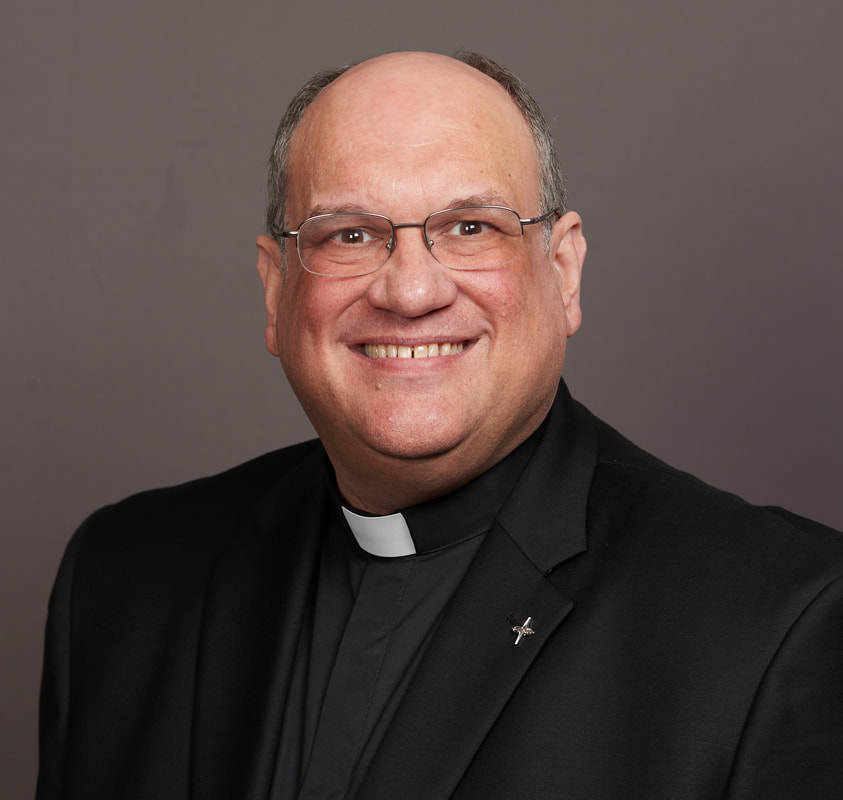
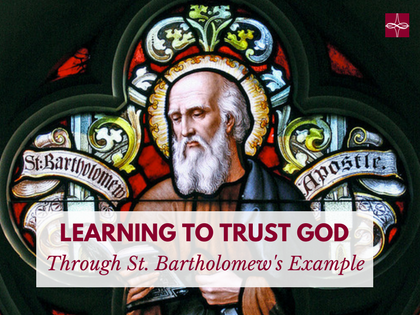

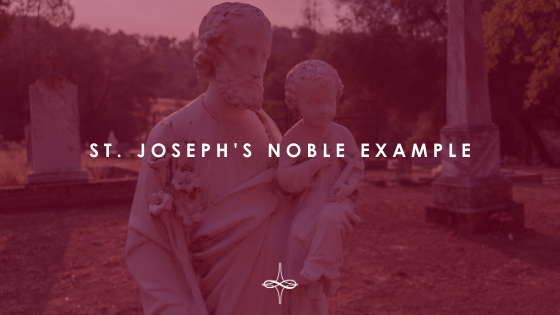

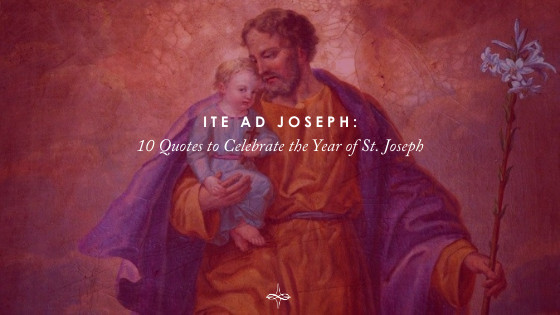









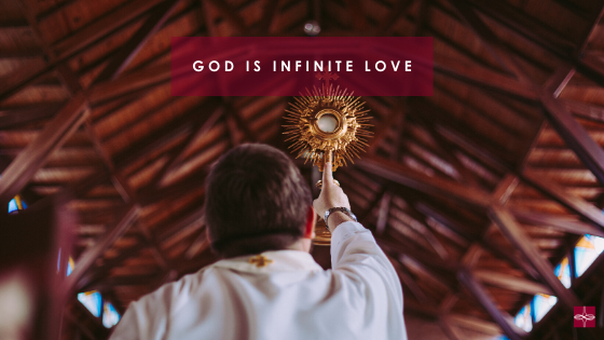
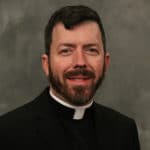
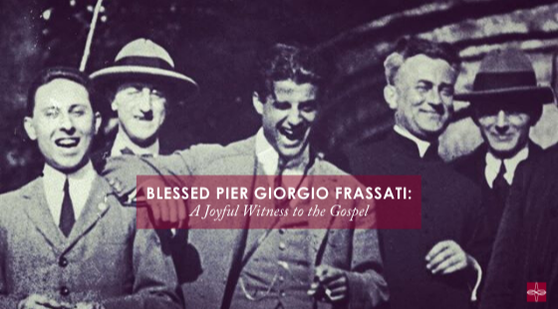



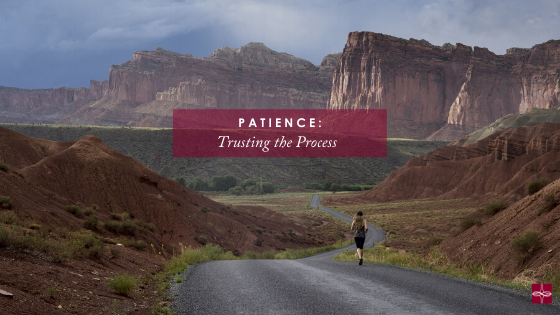

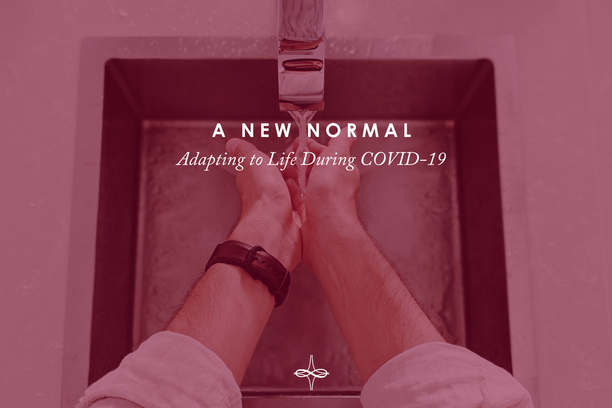
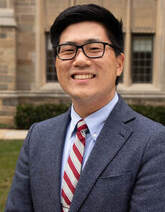
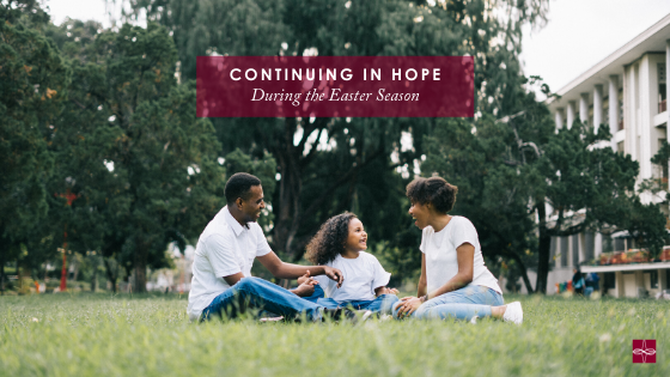


 RSS Feed
RSS Feed